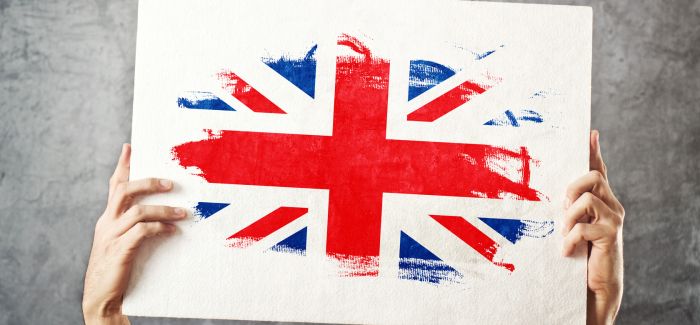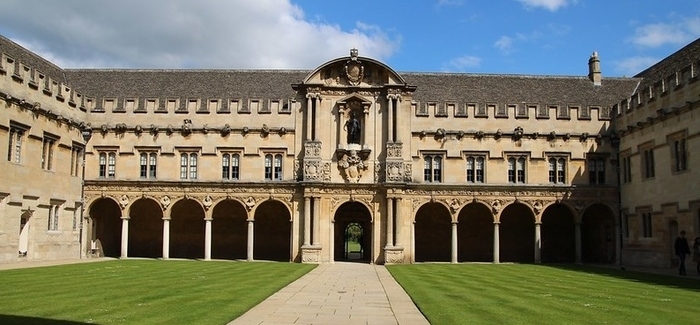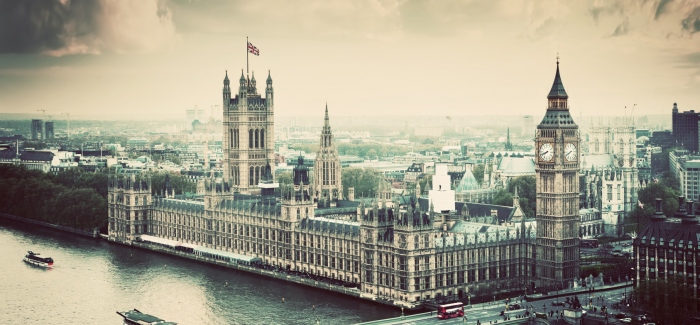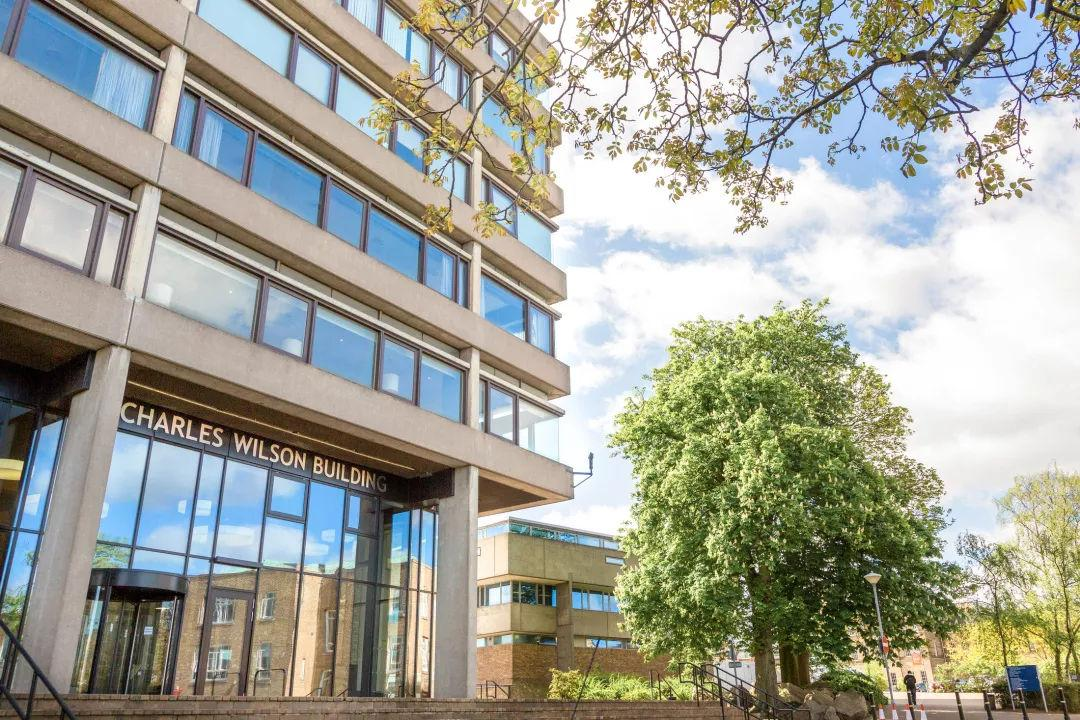With so many pledges and promises, misconceptions and lack of trust, you may be confused about who to vote for in the upcoming UK general election. Following the recent release of the Labour Party manifesto and the Conservative Party manifesto, the public seems as divided as ever about who should be running the country.
In this article we will be deciphering the two leading parties’ manifestos on a variety of issues that might affect students, so you can decide for yourself. The policies we are going to explore include life after graduation (how the parties plan to improve conditions for workers), immigration, the environment, transport, the NHS, higher education and Brexit. We will then reveal how the parties intend to fund their public expenditure.
Working life after graduation
[[{"fid":"1288621","view_mode":"default","attributes":{"class":"media-element file-default","data-delta":"1"},"fields":{"format":"default","field_file_image_alt_text[und][0][value]":false,"field_file_image_title_text[und][0][value]":false},"type":"media","field_deltas":{"1":{"format":"default","field_file_image_alt_text[und][0][value]":false,"field_file_image_title_text[und][0][value]":false}}}]]
Conservatives:
The Conservative Party will not raise the rate of income tax, VAT or National Insurance, and will further raise the National Living Wage. They will encourage flexible working and strive to make it the default, unless employers have a good reason not to. They will create a single enforcement body and crack down on any employer abusing employment law (e.g. employers that take workers’ tips or refuse them sick pay).
Labour:
The Labour Party will raise income tax for those who earn more than £80,000 per year to pay for public services. Within a decade they will reduce full-time weekly working hours to 32 hours, with no loss of pay, and will also deliver year on year above inflation pay rises.
They will set up an independent Working Time Commission to advise on raising minimum holiday entitlements and reducing maximum weekly working time. Workers will be given a stake in the companies they work for and a share of the profits they help create, by requiring large companies to set up Inclusive Ownership Funds (IOFs). Under IOFs, up to 10 percent of a company will be collectively owned by employees with dividend payments distributed equally (capped at £500 per year).
Immigration
[[{"fid":"1288624","view_mode":"default","attributes":{"class":"media-element file-default","data-delta":"2"},"fields":{"format":"default","field_file_image_alt_text[und][0][value]":false,"field_file_image_title_text[und][0][value]":false},"type":"media","field_deltas":{"2":{"format":"default","field_file_image_alt_text[und][0][value]":false,"field_file_image_title_text[und][0][value]":false}}}]]
Conservatives:
The Conservatives will overhaul the current immigration system ‘to make it more fair and compassionate’ and introduce an Australian style points-based system ‘to control immigration’. Under this new system, they will prioritize those who have a good grasp of the English language, have been law abiding citizens in their own countries and have good education and qualifications. Like Australia, the Conservatives say that most people coming into the country will need a clear job offer.
The Conservative Party says EU and non-EU citizens will be treated equally and will be welcomed if they meet the criteria. However, they say that EU citizens who came to live in the EU before Brexit can stay and will continue to have their existing rights guaranteed – supported by the EU Settlement Scheme, which ensures these rights.
Labour:
Labour say they will scrap the 2014 Immigration Act (which ‘prevents illegal immigrants accessing and abusing public services or the labor market’ and ‘making it easier and quicker to remove those with no right to be here’.) They say the immigration system must allow the UK to recruit the people we need, and to welcome them and their families, and the UK’s work visa system must fill any skills or labor shortages that arise. They vow to stop the undercutting of wages and conditions and the exploitation of all workers, including migrant workers.
Labour will also ‘work with others to resume rescue missions in the Mediterranean, co-operate with the French authorities to put an end to the horrific camps, and establish safe and legal routes for asylum seekers. Once here, refugees will have the right to work, access to public services and will be treated humanely by government at all levels.
The Environment
[[{"fid":"1288846","view_mode":"default","attributes":{"class":"media-element file-default","data-delta":"3"},"fields":{"format":"default","field_file_image_alt_text[und][0][value]":false,"field_file_image_title_text[und][0][value]":false},"type":"media","field_deltas":{"3":{"format":"default","field_file_image_alt_text[und][0][value]":false,"field_file_image_title_text[und][0][value]":false}}}]]
Conservatives:
The Conservatives’ goal is to be carbon neutral by 2050, and they will ask their global partners to match their ambition. They believe that free markets, innovation and prosperity can protect the planet. They will set up new international partnerships to tackle deforestation and protect vital landscapes and wildlife corridors, establish a new £500 million Blue Planet Fund to help protect our oceans from plastic pollution, warming sea temperatures and overfishing and extend the Blue Belt program.
There will be a £4 billion investment in R&D, decarbonization schemes, new flood defenses, clean energy and electric vehicle infrastructure.£800 million will be invested in the building of the first fully deployed carbon capture storage cluster by the mid-2020s, and £9.2 billion will be invested in the energy efficiency of homes, schools and hospitals, which will help lower energy bills.
The party will support clean transport to ensure clean air, as well as setting strict new laws on air quality and phasing out the sale of new conventional petrol and diesel cars. In addition to this, they will support gas for hydrogen production and nuclear energy, alongside increasing their commitment to renewables.
Labour:
As part of their ‘Green Industrial Revolution’, Labour aim to achieve the majority of emissions reductions by 2030, reducing the energy use in buildings to from 56 to 30 percent by 2030 by delivering heat from renewable and low carbon sources. They will build 7,000 new offshore wind turbines, 2,000 new onshore wind turbines and enough solar panels to cover 22,000 football pitches. They will make producers responsible for the waste they create and for the full cost of recycling or disposal, encouraging more sustainable design and manufacturing.
They will upgrade almost all of the UK’s 27 million homes to the highest energy efficient standards, which they claim will reduce the average household energy bill by £417 per household per year by 2030 and eliminate fuel poverty.
Labour will introduce a ‘clean air act’ with a vehicle scrapping scheme and clean air zones and provide £5.6 billion in funding to improve the standard of flood defenses and respond to the increased risk of flooding. They will plant trees, fully fund the Environmental Agency and other frontline environment agencies and improve upstream river management, creating new National Parks and establishing a new environmental tribunal.
Transport
[[{"fid":"1288847","view_mode":"default","attributes":{"class":"media-element file-default","data-delta":"4"},"fields":{"format":"default","field_file_image_alt_text[und][0][value]":false,"field_file_image_title_text[und][0][value]":false},"type":"media","field_deltas":{"4":{"format":"default","field_file_image_alt_text[und][0][value]":false,"field_file_image_title_text[und][0][value]":false}}}]]
Conservatives:
The Conservatives aim to connect the UK’s cities and regions, giving funding to upgrade bus, tram and train services. They will build the Northern Powerhouse Rail, investing in the Midlands Rail Hub, restoring many of the Beeching lines. They say they will end the complicated franchising model and create a simpler more effective rail system. HS2 will cost at least £81 billion, they reveal, and will not be viable until 2040.
There will be a £28.8 billion investment in strategic and local roads, and they will invest in a superbus network with lower fares and increased frequency.
Labour:
Labour will bring railways back to public ownership, making fares simpler and more affordable. They will introduce a long-term investment plan, which will deliver Crossrail to the North and will complete HS2. They will promote the use of rail freight to reduce carbon emissions, air pollutants and congestion on the road.
They will regulate and take public ownership of bus services, as well as introducing free bus travel for under 25s, and will attempt to end new sales of combustion engine vehicles by 2030.
The NHS
[[{"fid":"1288848","view_mode":"default","attributes":{"width":"700","class":"media-element file-default","data-delta":"5"},"fields":{"format":"default","field_file_image_alt_text[und][0][value]":false,"field_file_image_title_text[und][0][value]":false},"type":"media","field_deltas":{"5":{"format":"default","field_file_image_alt_text[und][0][value]":false,"field_file_image_title_text[und][0][value]":false}}}]]
Conservatives:
The Conservatives promise extra funding for the NHS, with 50,000 more nurses, 6,000 more doctors in general practice, 6,000 more supportive hospital management, as well as 50 million more GP surgery appointments per year. This will be supported by £1 billion extra funding every year to spend on more social care staff and better infrastructure, technology and facilities. They will also end unfair hospital car parking charges by making parking free for those in greatest need.
As well as promising to build and fund 40 new hospitals over the next 10 years (and 20 hospital updates), the Conservative party will allocate a £35 million cash injection to hospices to support 200,000 people at the end of their lives.
Medical students will receive a £5,000-£8,000 annual maintenance grant every year during their course to help with the cost of living (which will not need to be repaid).
Labour:
Labour will increase expenditure across the health sector by an average of 4.3 percent per year, stop bed cuts and complete the confirmed hospital rebuilds, providing free parking for staff, patients and visitors. They will expand GP training places to provide resources for 27 million more appointments each year and ensure community pharmacy is supported. As well as offering free annual NHS dental checkups, Labour will improve access to psychological therapies and provide an extra £1.6 billion per year to help with mental health. Alcohol related deaths and health problems will be addressed through expanded addiction support services. They will fully fund sexual health services and roll out PrEP medication (to prevent HIV) and establish a generic drug company which will produce drugs at fair prices.
Labour say they will invest, train and develop NHS staff throughout their careers. They will introduce a training bursary for nurses, midwives and allied health professionals.
Higher education
[[{"fid":"1288862","view_mode":"default","attributes":{"width":"700","class":"media-element file-default","data-delta":"7"},"fields":{"format":"default","field_file_image_alt_text[und][0][value]":false,"field_file_image_title_text[und][0][value]":false},"type":"media","field_deltas":{"7":{"format":"default","field_file_image_alt_text[und][0][value]":false,"field_file_image_title_text[und][0][value]":false}}}]]
Conservatives:
The Conservatives will maintain and strengthen the UK’s global position in higher education. They will ‘look at the interest rates on loan repayments with a view to reducing the burden of debt on students’ and tackle low quality courses and grade inflation, as well as improving the application and offer system for undergraduate students.
Labour:
Labour will abolish tuition fees completely and bring back maintenance grants, ensuring that all public higher education institutions have adequate funding for teaching and research.
Brexit
[[{"fid":"1288849","view_mode":"default","attributes":{"class":"media-element file-default","data-delta":"6"},"fields":{"format":"default","field_file_image_alt_text[und][0][value]":false,"field_file_image_title_text[und][0][value]":false},"type":"media","field_deltas":{"6":{"format":"default","field_file_image_alt_text[und][0][value]":false,"field_file_image_title_text[und][0][value]":false}}}]]
Conservatives:
The Conservatives say they will leave the EU with an established deal by the agreed deadline of January 31st.
Labour:
A second Brexit referendum will be held in six months’ time and the people’s decision will be implemented immediately. If the vote is Leave, they will try to secure a new Brexit deal that protects jobs, rights and the environment.
How will they pay for it?
[[{"fid":"1288908","view_mode":"default","attributes":{"class":"media-element file-default","data-delta":"8"},"fields":{"format":"default","field_file_image_alt_text[und][0][value]":false,"field_file_image_title_text[und][0][value]":false},"type":"media","field_deltas":{"8":{"format":"default","field_file_image_alt_text[und][0][value]":false,"field_file_image_title_text[und][0][value]":false}}}]]
Conservatives:
Revenue from corporation tax (reduced from 19 percent to 17 percent), health immigration surcharge, plastic packaging tax and cracking down on tax avoidance and evasion measurements.
Labour:
Revenue from increased corporation tax (26 percent, or 21 percent on business with an annual turnover of less than £300,000), stopping tax avoidance and tax relief inefficiencies.
**
Who are you voting for in the 2019 UK General Election? Have your say in the comments below.












